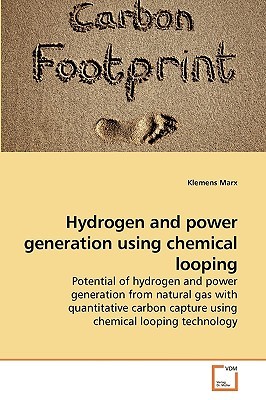
- We will send in 10–14 business days.
- Author: Klemens Marx
- Publisher: VDM Verlag
- ISBN-10: 3639159306
- ISBN-13: 9783639159301
- Format: 15.2 x 22.9 x 0.8 cm, minkšti viršeliai
- Language: English
- SAVE -10% with code: EXTRA
Hydrogen and power generation using chemical looping (e-book) (used book) | bookbook.eu
Reviews
Description
Carbon capture and storage (CCS) from carbon fueled processes seems to be the key mid-term strategy to limit the carbon dioxide concentration in the atmosphere. Chemical looping is proposed as a combustion technology (CLC) with inherent CO2 separation and as a hydrogen production process using reforming (CLR). The potential of chemical looping technology is the low energy penalty for CO2 capture. This study focuses on the implementation of chemical looping into a power-, and a hydrogen production process in the scale of 10 MW fuel power. The aim is to show achievable efficiencies and optimization potentials of such systems in order to allow the evaluation of the competitiveness of chemical looping technology.
EXTRA 10 % discount with code: EXTRA
The promotion ends in 23d.22:33:07
The discount code is valid when purchasing from 10 €. Discounts do not stack.
- Author: Klemens Marx
- Publisher: VDM Verlag
- ISBN-10: 3639159306
- ISBN-13: 9783639159301
- Format: 15.2 x 22.9 x 0.8 cm, minkšti viršeliai
- Language: English English
Carbon capture and storage (CCS) from carbon fueled processes seems to be the key mid-term strategy to limit the carbon dioxide concentration in the atmosphere. Chemical looping is proposed as a combustion technology (CLC) with inherent CO2 separation and as a hydrogen production process using reforming (CLR). The potential of chemical looping technology is the low energy penalty for CO2 capture. This study focuses on the implementation of chemical looping into a power-, and a hydrogen production process in the scale of 10 MW fuel power. The aim is to show achievable efficiencies and optimization potentials of such systems in order to allow the evaluation of the competitiveness of chemical looping technology.


Reviews